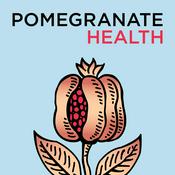In 2027, NASA’s is planning to land astronauts on the moon for the first time in 53 years with the expectation that there will be a permanent base there by the early 2030s. And the ever-humble Elon Musk reckons he’ll be sending people to Mars by then too.
This has prompted a renewed interest in the prolonged effects of space travel on the human body, and a lot of fascinating research has been conducted aboard the International Space Station over the last two decades.
The main objective risk to astronauts is exposure to galactic cosmic radiation. This can be reduced to some degree by shielding of space habitats, however, the impacts of microgravity are much harder to engineer away. In part 1 we’ll discuss spaceflight associated neuro-ocular syndrome and other sensorimotor impacts. In part 2 we’ll focus on the effects of microgravity on bone density and the circulatory system.
We’ll also talk through the management of a cases of suspected thrombosis on the international space station from a few years ago. Medical care on orbit has many parallels with the remote medicine you’re already familiar with.
Guests
Professor Gordon Cable (Australian National University; Co-founder, Human Aerospace)
Dr Alicia Tucker FACEM, FAWM (Royal Hobart Hospital; University of Tasmania)
Dr John Cherry PhD FACRRM (Deputy CMO, Australian Antarctic Division)
Chapters
4:55 Cosmic Radiation
18:34 Spaceflight Associated Neuro-ocular Syndrome
33:01 Occupational Hazards
Production
Produced by Mic Cavazzini DPhil. Recording of ‘Also Sprach Zarathustra’ by Richard Strauss, licenced under Creative Commons from the Lud and Schlatts Musical Emporium Conducted by Philip Milman. Music licenced from Epidemic Sound includes ‘Orthosie’ by Ben Elson, ‘Spring Water’ By Chill Cole and ‘Temple of Runha’ by ELFL. Music courtesy of Free Music Archive includes ‘The Undertake’ and ‘Operation A’ by Borttex. NASA audio downloaded from SPACE.com YouTube channel. Image courtesy of NASA and WikiCommons. Image of first US moonwalk by Ed White courtesy of NASA and WikiCommons.
Editorial feedback kindly provided by members of the podcast editorial group Paul Cooper PhD, Dr Aidan Tan, Dr Rahul Barmanray, Dr Simeon Wong, Dr Fionnuala Fagan, Dr Maansi Arora, Dr Jia-Wen Chong, Dr Aafreen Khalid and Associate Professor Dr Stephen Bacchi.
Please visit the Pomegranate Health web page for a transcript and supporting references.Login to MyCPD to record listening and reading as a prefilled learning activity. Subscribe to new episode email alerts or search for ‘Pomegranate Health’ in Apple Podcasts, Spotify,Castbox or any podcasting app.



